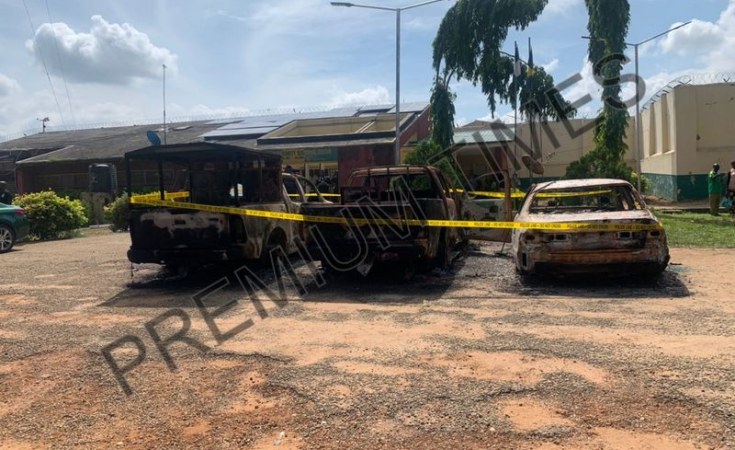There is need to overhaul the country's criminal justice system
Frank Mekwunye (now 32) was returning from Benin to Lagos in the company of two friends in 2013 when the bus they boarded was flagged down by a police at checkpoint in Ijebu-Ode, Ogun State. Detained without any trial during which his two friends were killed by the disbanded Special Anti-Robbery Squad, (SARS), Mekwunye was eventually framed for armed robbery and only released last December after spending nine years in prison without committing any offence. Mekwunye is just one of numerous cases of awaiting-trial inmates in our various prisons which speak to the challenge of criminal justice administration in Nigeria.
A recent report titled, 'A documentation of President Muhammadu Buhari's administration scorecard (2015-2023)' revealed that in 2015, there were 56,704 inmates, but by 2022, the figure had increased to 75,509. Of this figure, according to the report, 52,710 inmates, representing 69.8 per cent, are awaiting trial. Similarly the report noted that 3,145 inmates, comprising 3,084 males and 61 females are on death row. While majority of those unfortunate Nigerians may have spent longer time than the period for which they would have been jailed if their cases were heard promptly, it is worse that most of them are innocent victims of police frameup.
As we have argued on this page repeatedly, having these individuals languish in prison without any attempt at hearing their cases is a clear violation of their fundamental rights. But the main concern is that there is no sign that anything would change or that efforts are being made to address the problem. Beyond that, what the huge gulf between the number of convicted persons and those awaiting trial clearly reveals is that the machinery of justice dispensation has grounded to a halt in Nigeria. In a Twitter post this week, presidential candidate, Omoyele Sowore detailed several cases of people who were detained for frivolous reasons without being charged for any offence.
While we do not advocate a wholesale release of all detainees in our prisons, it does not make any sense to keep innocent people behind bars for years as it is currently the case. The growing number of death-row inmates is also a serious indictment on the governors. Statutorily, they are not bound to sign the warrants for the execution of such convicts since they have the powers to grant state pardon or commute the sentences. But it is unacceptable for governors to leave inmates perpetually on death row, especially when the Nigeria Correctional Service (NCS) Act provides in Section 12(2c) that "where an inmate sentenced to death has exhausted all legal procedures for appeal and a period of 10 years has elapsed without execution of the sentence, the Chief Judge may commute the sentence of death to life imprisonment."
Meanwhile, the security breaches in many prisons are strong evidence of a failed criminal justice administration for which the appropriate government authorities must take full responsibility. For example, there is no reason whatsoever why Kuje prisons with a capacity for 560 beds should have a population of almost 2,000 inmates. There is therefore the need for some intervention measures which should include access to justice programme for the inmates. This can be done if judicial authorities conduct prison inspections on a regular basis while there must always be a swift response to complaints.
However, we must also stress that efforts at decongesting our prisons or ameliorating the plight of ATM would come to naught without adequate judicial reform aimed at a complete overhauling of the country's criminal justice system. That is the only enduring way we can ensure that our prisons are not populated by innocent people while the real criminals roam the streets.


